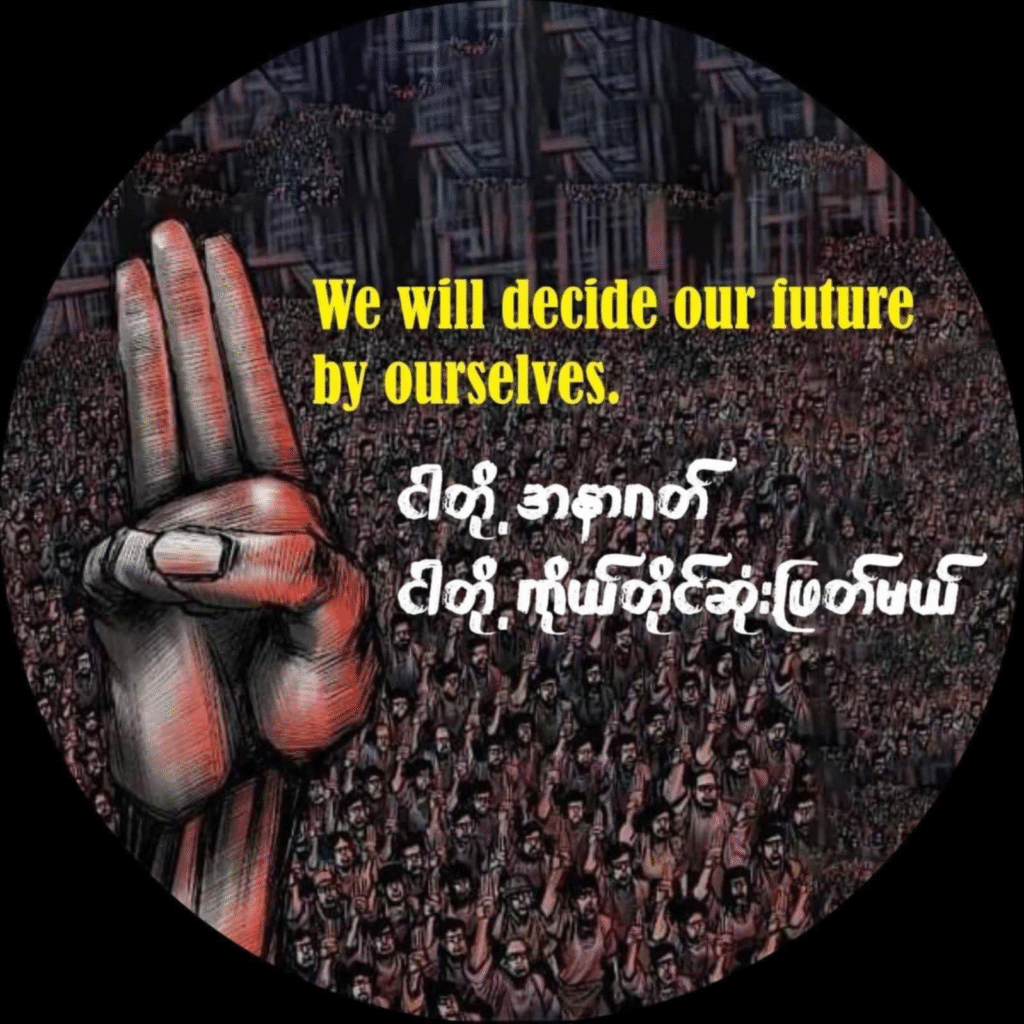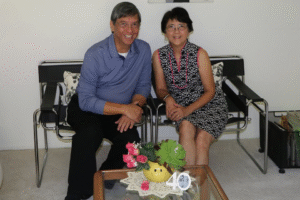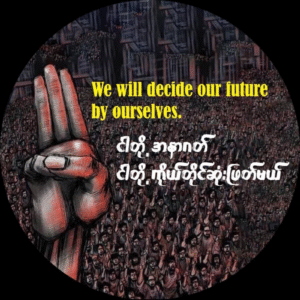Igor Blazevic


RECLAIMING THE REVOLUTION’S INITIATIVE
Calling for Improved Leadership, Clear Objectives, Coherent Strategy, and a Bold Political Narrative
Revolutionary Forces Must Act Now to Regain Momentum—Before It’s Too Late
——————————
Since the beginning of 2025, the junta has clearly been on an upward trajectory.
This does not mean the junta is winning. It isn’t. While they have made some notable gains, they’ve also suffered significant setbacks and still face deep structural weaknesses.
Their current momentum is driven primarily by the policies of neighboring countries (such as China and India) and the support of authoritarian powers like Russia.
But what also works in SAC favor is internal cohesion. Despite MAH’s incompetence and repeated strategic blunders, the junta, the military, and their support base are holding together in a disciplined and hierarchical way.
The actual situation is more of a (temporary) stalemate. But perception is now tilting in the junta’s favor. They appear stronger than they truly are. This perception is casting a long shadow—one of return, acceptance by outside players, and reconsolidation of their power.
Part of the problem is not just the junta’s diplomatic and recent military gains, or the momentum they are projecting, the international media coverage they receive, or the diplomatic acceptance they are gaining in a creeping way. The bigger problem lies in the current absence of initiative and a coherent narrative from the revolutionary forces.
From the outside, the junta’s short-term agenda is crystal clear. Over the next 6–8 months, they intend to:
• Regain control over some more cities.
• Hold their fortified positions in places where they are besieged for as long as possible, at all costs, in order to drag revolutionary forces into exhausting attrition. (See article: Siege warfare keeping Myanmar military in the fight by Anthony Davis at the Asia Times)
• Offer to foreign investors anything that could still be of value, regardless of whether the junta really controls those assets or not, just to cast the image that they are the government in charge of the country’s future and to attract any new funds for their ongoing war against the people.
• Re-enter international and regional diplomacy through any crack or opening that appears.
• Continue building military capacity—particularly drones and airpower—and swell their ranks through endless forced recruitment.
• Organize fake elections to seek international legitimacy.
And disturbingly, they are progressing on all of those fronts.
The SAC is not capable militarily to defeat the revolution any time soon. While SAC has initiated several offensive operations, it is unlikely to militarily defeat EAOs or PDFs within a year or two, or recapture a significant number of towns under revolutionary control.
However, the SAC can prevail politically if the SAC will be repackaged as a civilian government through a sham election within 10 months. China, India, Thailand, and other ASEAN neighbors are ready to accept the result while knowing that it is a sham election. If the result is accepted by regional actors, the EU, the UK, and the US will have no option but to quietly and gradually engage with the new pseudo-civilian government in Naypyitaw.
If this happens:
• The NUG will no longer receive existing international moral and political support.
• The Myanmar military will reclaim financial access to the international market and economy.
• The Myanmar military will access the international market for better technology and ammunition, and will gradually start to recover militarily and become stronger and stronger. It will not take them too long to be able to outpower any resistant group, whether it be EAOs or PDFs.
• Ambassador Kyaw Moe Tun will lose his UN seat, replaced by a newly delegated person from Naypyidaw. U Win Myint and Daw Aung San Suu Kyi will be replaced as head of state and Foreign Minister in the UN list.
• The NUG will be diminished to one more non-state revolutionary organization among many others, and PDFs will be a pleyade of insurgent group.
• Some ERO/EAO will opt for a ceasefire with some level of control over ‘their’ territories and economic opportunities. This will not include cities, important routes and border crossings, that will again come under control of Naypyidaw government. None of EROs will continue to support NUG as a potential state actor or government.
• People, while still hate the Myanmar military, but they will unwillingly accept a new civilian government as a reality. The Spring Revolution and aspirations of federal democracy will be relegated to wishful thinking and one more failed dream.
• The NUG and all revolutionary actors have only six months to stop or counter what is unfolding in Nay Pyi Taw and Myanmar’s most populated urban centers.
———————————–
RESTORING REVOLUTIONARY INITIATIVE THROUGH COORDINATED ACTION
By contrast, the revolutionary movement’s objectives for the next 6–8 months are unclear.
We continue to operate on the level of vague, abstract goals—remove the junta, end all forms of dictatorship, build a federal democratic Myanmar.
But our specific narratives are either absent or reactive—rejecting the junta’s sham elections or appealing to other countries not to engage with junta representatives.
The NUG appears lost in its own reform. Other revolutionary actors seem preoccupied with their own challenges and plans.
Yes, it’s possible that a major offensive or strategic move is underway behind the scenes—something that will surprise us all, just like Operation 1027 did.
But what if that’s not the case? What if we are, in fact, losing the initiative—and lack the capacity and coordination to take it back?
If we accept this diagnosis, then we must also accept the remedy. Improving joint leadership is not optional—it is urgent. That means strengthening joint leadership across three critical areas:
• Military, financial, and logistical coordination
• Unified political direction
• Strategic communication—not just releasing occasional statements, but actively engaging, daily, in the battle for public narrative
The junta’s planned fake elections will only deepen their momentum and weaken ours. We cannot effectively counter these elections with:
• Campaigns to discredit and delegitimize
• Disruptions or threats
• Boycotts or blocking elections in ERO and PDF-controlled areas
• Simply claiming the 2020 elections remain the only legitimate ones
We must do all of that, but it will not be enough. If we just oppose junta’s elections – that elections are still the only game in the town. We need to create a positive alternative. We need to change the game that is played, the game that is talked about!!!
First, we need several successful military offensives, which will change the perception and narrative who is winning and who is 3losing.
Second, we need a visible political process among revolutionary actors that produces a credible political alternative with a clear and unified narrative—a narrative that reclaims legitimacy and inspires confidence across the country.
Controlling liberated territory is not, by itself, enough to challenge the junta’s post-election claims to central authority.
Only if our territorial control leads to the creation of representative structures and a joint decision-making body (executive!!!) can we credibly say: “We—not the junta repackaged through sham elections—are the true central government of Myanmar.”
And all of this must be matched by a relentless push in the information space.
We must ‘flood the zone’ with our own confident, hopeful, and credible narratives—offering the people a real, believable promise for the future.






